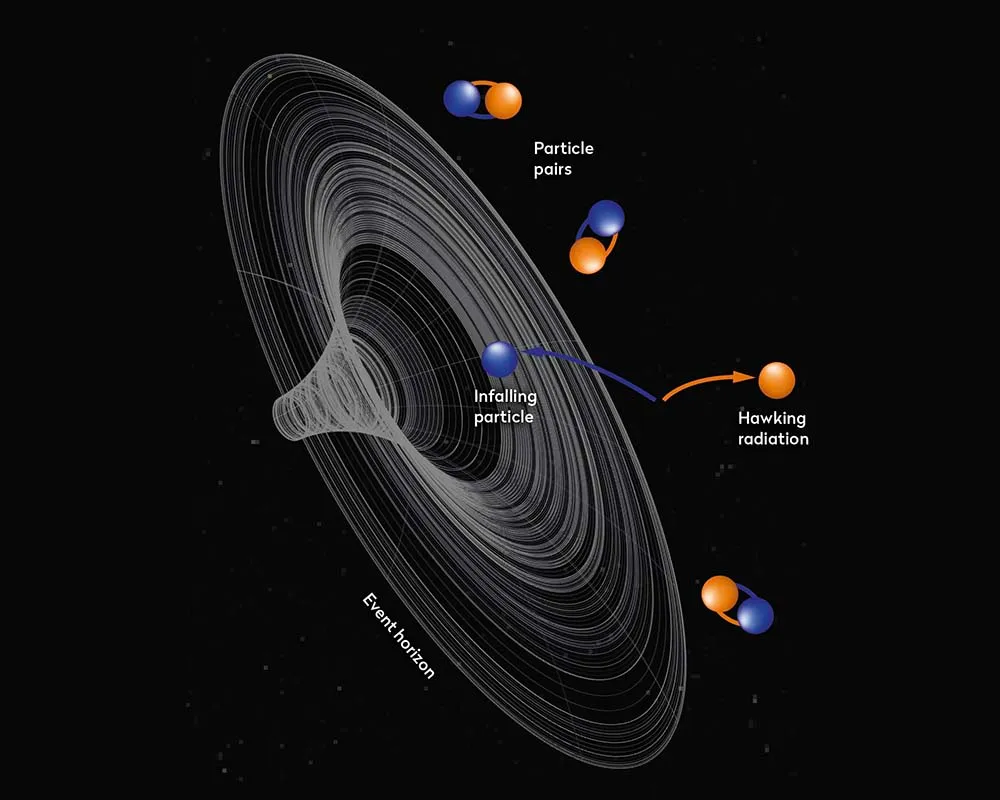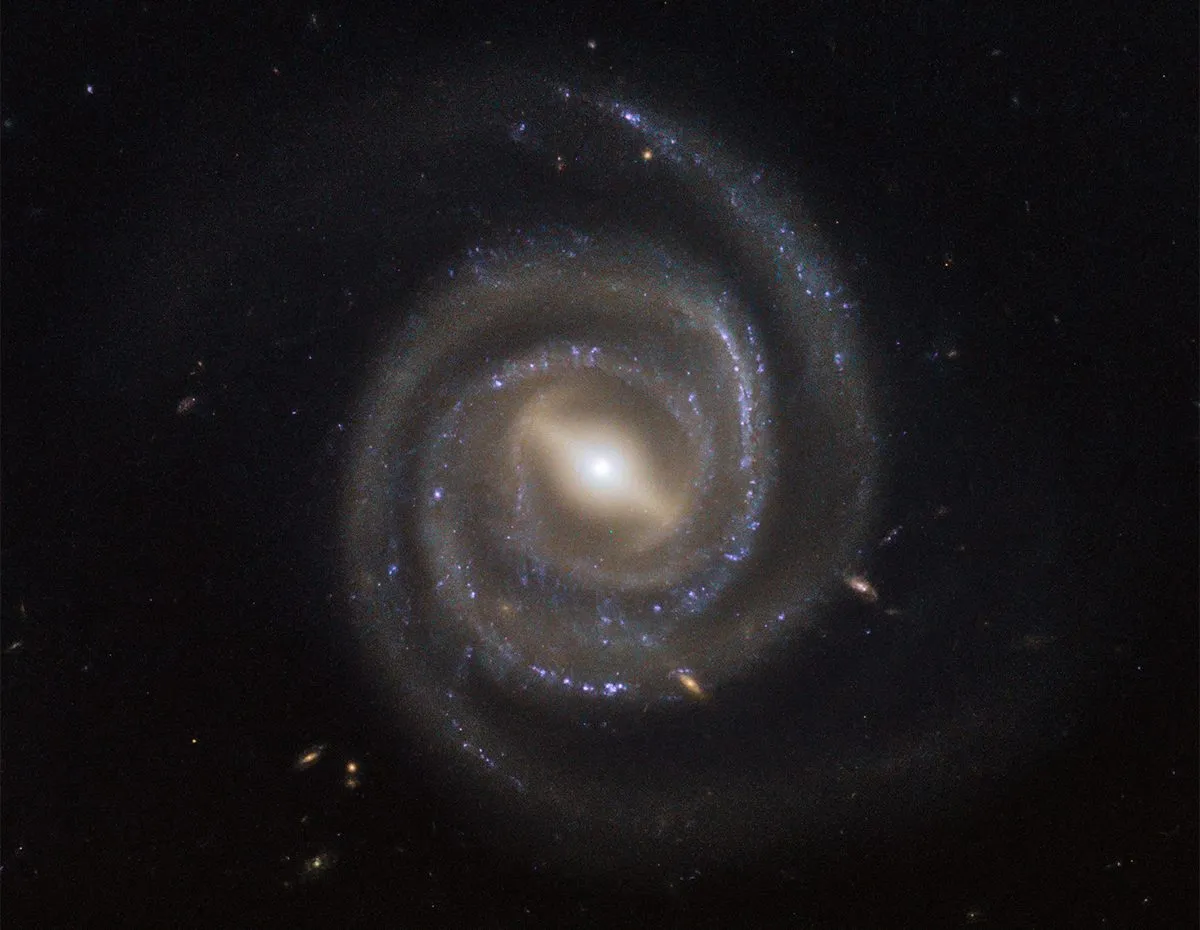Black holes are often thought of as indestructible cosmic vacuum cleaners, sucking up everything that strays to close, but of course we know they are more complex than that.
But are black holes the immortal monsters that they may be popularly considered, or will they eventually fizzle out and die?
According to Stephen Hawking’s theories, black holes won’t be around forever. Instead they will slowly evaporate as they give out what is known as Hawking radiation.
Here’s what astronomers think might happen around the event horizon, the boundary between where you can outrun the black hole’s gravity and where you can’t.
Hawking radiation explained

Quantum physics says that pairs of particles are constantly popping into and out of existence.
Hawking’s genius was to imagine this process unfolding at the event horizon, so that the pair appear on opposite sides of it.
One would be free to escape, but the other would be trapped forever.
The escaping particles could combine into particles of light that stream out from the region just outside the event horizon.
Over time, the black hole would slowly lose this energy and disappear.
Slowly is somewhat of an understatement, though.
How long it takes for black holes to die

Black holes with a mass equal to the Sun’s would take 1067 years to evaporate completely, or 'die'.
That’s 1 followed by 67 zeroes.
For the supermassive black holes that we find at the centres of most galaxies, it could take as long as 10100 years for them to evaporate, or 'die'.
However, Hawking radiation is yet to be conclusively discovered and so black hole evaporation remains a theoretical process for now.
This article originally appeared in the February 2024 issue of BBC Sky at Night Magazine.

